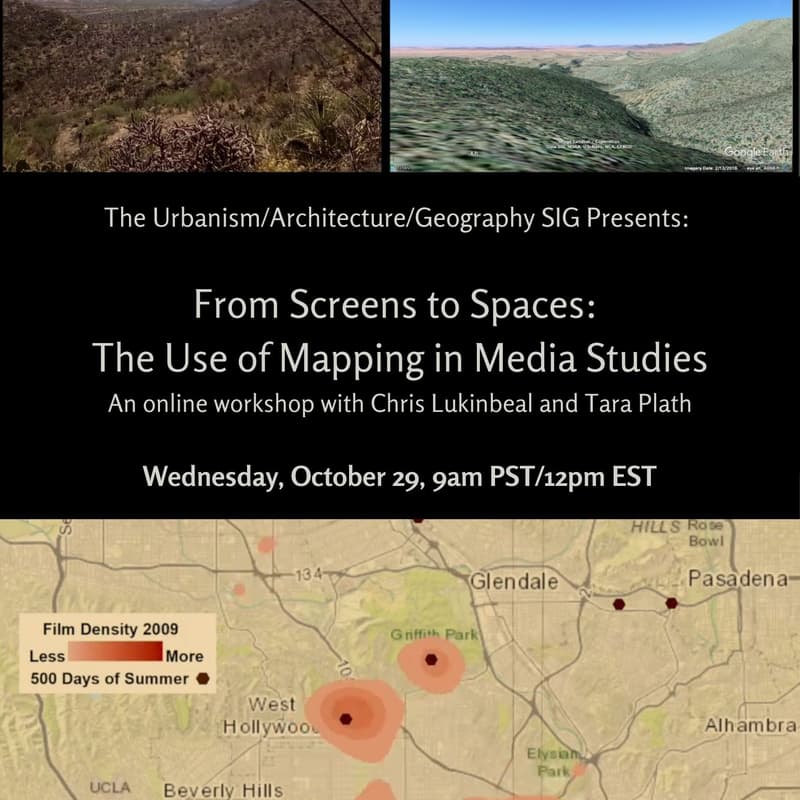

From Screens to Spaces: The Use of Mapping in Media Studies
This workshop will explore different applications of mapping in media studies research. Attendees will consider how mapping can open new perspectives on film, media, and space, and will leave with ideas for incorporating spatial thinking and mapping techniques into their own research.
Mapping Film Production
Chris Lukinbeal
How can maps help us understand film and cities? This talk introduces mapping as a research method in film geography, using sources like film permits and production notes to reveal where and how movies are made. Case studies from Los Angeles and San Diego show how spatial analysis can uncover patterns of production, urban change, and the cultural life of places. We will look at datasets from the two cities to see what kind of information they hold, how to get the information into map form and what kinds of spatial analysis and qualitative analysis can be conducted. Attendees will see how archival and administrative data can be transformed into maps, opening up questions about space, culture, and the intersections between creative industries and cities.
Chris Lukinbeal is the founding Director of Geographic Information Systems Technology Programs at the University of Arizona, USA, and Professor of the School of Geography Development and Environment. He earned his PhD in Geography from San Diego State University and University of California, Santa Barbara. Chris is a cultural geography and cartographer with research interests in representation, visualization, media, and cinema.
Countermapping the Border
Tara Plath
This talk explores activist countermapping methods, open source investigation techniques, and media tactics at the US-Mexico border. It considers what it means to be a “practice-based researcher” in the humanities, and explores how geolocation and remote sensing techniques can both contribute to grounded activist efforts while also proposing alternative reading practices from a distance. We will look at Freedom of Information Act (FOIA) requests, satellite imagery, social media, and photography and video as four examples of source material that can be used to create maps and spatialize data, while also exploring ways of creative problem-solving in the absence of a desired data set. Attendees will be encouraged to think methodologically, and to consider what unexpected questions and concepts might arise in the process of making a map.
Tara Plath is a PhD candidate in the Film and Media Studies Department at UC Santa Barbara. She holds an MA in Research Architecture from Goldsmiths, University of London and a BFA in Sculpture and BA in Visual and Critical Studies from the School of the Art Institute of Chicago. She is an interdisciplinary practice-based researcher whose interests include border media, spatial media, counter-mapping, human rights, and open-source investigation techniques.